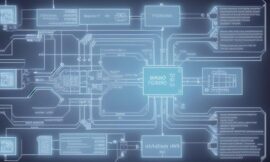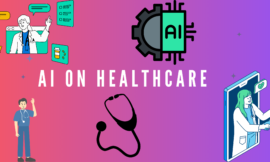In recent years, artificial intelligence (AI) has made significant inroads into various sectors, revolutionizing how we approach tasks and processes. One of the most exciting developments in AI is its application in software development. AI code assistants, powered by machine learning and natural language processing (NLP), are transforming the way developers write, debug, and manage code. This article explores how AI code assistants are changing software development, the benefits they offer, the challenges they pose, and what the future might hold for developers and the tech industry as a whole.
1. What are AI Code Assistants?
AI code assistants are tools that leverage AI to help developers write code more efficiently. These tools can autocomplete code, suggest improvements, identify bugs, and even generate entire code snippets based on natural language prompts. The goal of AI code assistants is to streamline the coding process, reduce errors, and enhance productivity.
Popular AI Code Assistants:
- GitHub Copilot: Developed by GitHub and OpenAI, Copilot is one of the most well-known AI code assistants. It integrates with popular IDEs like Visual Studio Code to suggest code completions, generate entire functions, and even help with complex algorithms.
- Tabnine: Tabnine is an AI-driven code completion tool that supports multiple programming languages and provides intelligent code suggestions based on context.
- Codex by OpenAI: Codex is the AI model behind GitHub Copilot and is specifically trained to understand and generate code. It supports over a dozen programming languages and can help with everything from basic code snippets to complex software design.
2. The Impact of AI Code Assistants on Software Development
AI code assistants are making a profound impact on the software development industry. By automating various aspects of coding, these tools are changing how developers approach their work, leading to increased efficiency, better code quality, and a more streamlined development process.
A. Increased Productivity:
One of the most significant benefits of AI code assistants is the boost in productivity they offer. Developers can write code faster by relying on AI to autocomplete lines, suggest code snippets, and generate boilerplate code. This allows developers to focus more on solving complex problems and less on repetitive tasks.
B. Improved Code Quality:
AI code assistants can help improve code quality by suggesting best practices, identifying potential bugs, and offering optimized solutions. This leads to cleaner, more efficient code that is easier to maintain and less prone to errors. For instance, GitHub Copilot can suggest entire functions that follow best practices, reducing the likelihood of introducing bugs.
C. Enhanced Learning for Developers:
AI code assistants are also valuable learning tools. They can provide real-time suggestions and explanations, helping developers understand new programming languages, frameworks, or algorithms more quickly. This makes them an excellent resource for junior developers or those looking to expand their skill set.
D. Streamlined Debugging:
Debugging is a time-consuming aspect of software development. AI code assistants can expedite this process by automatically identifying common coding errors, suggesting fixes, and even offering explanations for why certain bugs occur. This reduces the time spent on debugging and allows developers to focus on new features and improvements.
E. Collaboration and Code Review:
AI code assistants can also enhance collaboration among development teams. Tools like Tabnine offer features that help with code review, suggesting improvements and ensuring that all team members adhere to the same coding standards. This leads to more consistent codebases and smoother collaboration across teams.
For more insights on the impact of AI on software development, visit ZDNet.
3. Challenges and Limitations of AI Code Assistants
While AI code assistants offer numerous benefits, they also come with challenges and limitations that developers and organizations must consider.
A. Dependence on AI:
As AI code assistants become more integrated into the development process, there is a risk of developers becoming overly reliant on these tools. This dependence could lead to a decline in coding skills, as developers may rely on AI to solve problems rather than understanding the underlying concepts.
B. Quality of AI Suggestions:
AI code assistants are not infallible. The quality of their suggestions can vary depending on the complexity of the task, the programming language, and the context. In some cases, AI-generated code may introduce bugs or inefficiencies that require human intervention to resolve. Developers must remain vigilant and critically evaluate AI-generated code.
C. Security Concerns:
AI code assistants can inadvertently introduce security vulnerabilities if they suggest insecure coding practices or fail to recognize potential threats. For example, an AI tool might generate code that is vulnerable to SQL injection attacks if it does not adequately sanitize user inputs. Developers must be aware of these risks and ensure that security best practices are followed.
D. Ethical Considerations:
The use of AI in software development raises ethical questions, particularly regarding intellectual property and the potential for AI-generated code to infringe on copyrighted material. Additionally, there are concerns about the transparency of AI algorithms and how they arrive at their suggestions. These issues must be addressed to ensure that AI code assistants are used responsibly.
E. Compatibility and Integration:
Not all AI code assistants are compatible with every IDE or programming language. This can limit their usefulness for developers working with less common languages or environments. Additionally, integrating AI tools into existing workflows may require significant changes to development processes, which can be a barrier to adoption.
For more on the challenges of AI in software development, see TechCrunch.
4. The Future of AI Code Assistants in Software Development
As AI technology continues to advance, the role of AI code assistants in software development is likely to expand. Here are some potential future developments:
A. Advanced Natural Language Processing:
Future AI code assistants may feature even more advanced natural language processing capabilities, allowing developers to describe complex algorithms or software designs in plain English and have the AI generate the corresponding code. This could democratize software development, making it more accessible to non-developers or those with limited coding experience.
B. Seamless Integration with DevOps:
AI code assistants may become more integrated with DevOps pipelines, automating not only coding tasks but also testing, deployment, and monitoring. This could lead to a more streamlined software development lifecycle, with AI handling many of the repetitive or time-consuming tasks involved in DevOps.
C. Personalized AI Assistants:
As AI becomes more sophisticated, developers may have access to personalized AI assistants that learn from their coding habits, preferences, and style. These AI tools could offer more tailored suggestions, making them even more useful and efficient for individual developers.
D. AI-Driven Code Refactoring:
Future AI code assistants may be able to automatically refactor legacy codebases, optimizing them for performance, readability, and maintainability. This could significantly reduce the technical debt that many organizations face, allowing developers to focus on new features and improvements.
E. Ethical AI in Development:
As AI code assistants become more prevalent, there will likely be a greater focus on developing ethical AI models that are transparent, fair, and accountable. This may involve new standards and regulations governing the use of AI in software development, ensuring that AI tools are used responsibly and ethically.
For more on the future of AI in software development, visit The Verge.
5. How Developers Can Adapt to the Rise of AI Code Assistants
As AI code assistants become more integral to software development, developers will need to adapt to these changes to remain competitive in the industry.
A. Embrace AI as a Tool, Not a Replacement:
Developers should view AI code assistants as tools that can enhance their productivity and efficiency, rather than replacements for their skills. By learning how to effectively use AI tools, developers can augment their capabilities and deliver higher-quality code faster.
B. Continue Learning and Upskilling:
The rise of AI in software development highlights the importance of continuous learning and upskilling. Developers should focus on improving their understanding of AI and machine learning concepts, as well as staying up-to-date with the latest developments in AI-powered tools.
C. Maintain Critical Thinking Skills:
Despite the convenience of AI code assistants, developers must maintain their critical thinking skills and remain vigilant in evaluating AI-generated code. This includes understanding the logic behind code suggestions, identifying potential errors or inefficiencies, and ensuring that best practices are followed.
D. Focus on Problem-Solving and Creativity:
AI tools excel at automating repetitive tasks, but they cannot replace human creativity and problem-solving abilities. Developers should focus on honing these skills, as they will remain essential in designing innovative solutions and overcoming complex challenges.
E. Stay Informed About Ethical and Legal Issues:
As AI becomes more integrated into software development, developers must be aware of the ethical and legal implications of using AI tools. This includes understanding issues related to intellectual property, data privacy, and algorithmic transparency.
For more tips on adapting to AI in software development, check out Medium.
Conclusion
AI code assistants are undoubtedly changing the landscape of software development, offering numerous benefits such as increased productivity, improved code quality, and enhanced learning opportunities. However, they also come with challenges, including potential over-reliance, quality control issues, and ethical concerns.
The future of AI in software development looks promising, with continued advancements in natural language processing, personalized AI tools, and deeper integration into DevOps processes. As AI continues to evolve, it will likely play a more significant role in the daily lives of developers, helping them to code smarter, faster, and more efficiently.
For developers, the key to thriving in this AI-driven world is to embrace these tools as valuable resources while continuing to develop the skills and knowledge that only humans can provide. By staying informed, upskilling, and maintaining a focus on creativity and problem-solving, developers can ensure that they remain relevant and indispensable in an industry that is increasingly shaped by artificial intelligence.
For further reading on the impact of AI code assistants and the future of software development, check out these resources:
- GitHub Copilot – Official page with features and capabilities.
- ZDNet’s article on AI in Software Development – Insights into how AI is transforming the software industry.
- TechCrunch – A detailed look at the pros and cons of AI code writing tools.
In conclusion, AI code assistants represent a significant step forward in software development, offering the potential to revolutionize how code is written and maintained. However, their successful integration into the development process will require careful consideration of both the benefits and the challenges they bring. By striking the right balance between leveraging AI’s capabilities and maintaining human oversight, the future of software development can be one of enhanced creativity, efficiency, and innovation.





